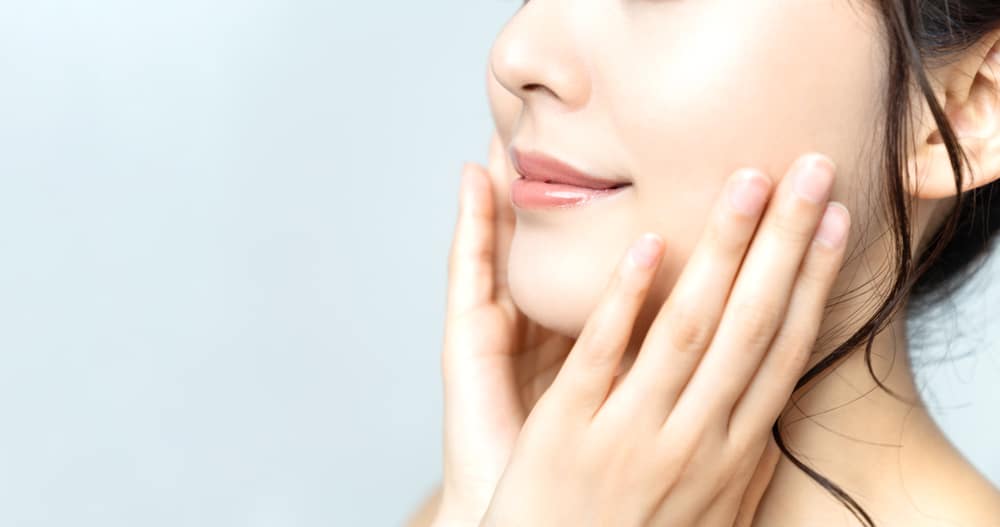Do you frequently experience headaches? Has your doctor been unable to explain them, forcing you to look for headache treatment in Spokane? Or maybe they have given you a diagnosis, but the treatments don’t seem to work. If that’s the case, it may be that your headaches are related to temporomandibular joint disorders (called TMJ or TMD). Doctors aren’t well equipped to recognize, diagnose, or treat TMJ. Instead, a neuromuscular dentist can help.
If you are looking for help with persistent or recurring headache in the Spokane area, please call 509-532-1111 today for an appointment with neuromuscular dentist Ken or Marnie Collins at Collins Dentistry & Aesthetics.

Headache Linked to TMJ
Headache is one of the most common symptoms of TMJ. In part, that’s because there are multiple types of headaches that have been linked to the condition. Most often, TMJ is linked to:
- Tension headaches
- Migraine headaches
- Referred pain headaches
Although there are different mechanisms that link these headaches, TMJ treatment can relieve them all.
Tension Headache and TMJ
Tension headaches are the most common headaches. They may account for more than three-quarters of all headaches. They are also the headaches most commonly associated with TMJ.
Tension headaches occur when muscles in the head are tense and won’t immediately relax, causing pain to themselves and surrounding tissues. Most TMJ-related pain is also linked to muscle tension. When your jaw is out of alignment, jaw muscles often remain perpetually tense. They work hard to try to pull the jaw into position (and may destroy the teeth and jaw joints in the process).
Tension headaches may be the jaw muscles themselves. The temporalis muscle is a jaw muscle that attaches at the side of the head just behind the eyes. This could be the source of many tension headaches. In addition, the jaw muscles can pass their tension on to other muscles in the head.
Migraines and TMJ
The link between migraines and TMJ is not as well understood. In part, that’s because migraines themselves aren’t well understood. We think there are three links between migraines and TMJ.
First, it’s possible that you have a tension headache misdiagnosed as a migraine. This is common.
Second, it’s common for tension headaches to trigger migraines. TMJ could be causing your tension headaches and setting the chain reaction in motion.

Finally, one important link in the causal chain of migraines is the trigeminal nerve. This nerve sends signals out to and receives them back from your jaw muscles. Tension and pain in the jaw muscles could overstimulate the trigeminal nerve, setting off migraines.
Referred Pain Headaches
Referred pain is when you feel pain in one part of the body, but the source of the pain is another. Thus, you might feel the pain as a headache, but it’s actually your jaw joint or your tooth that is hurting.
Referred pain might seem implausible, but it’s more common than you’d think.
Is Your Headache Linked to TMJ?
Headaches can be caused by many different things. So how do you know whether you should see a neuromuscular dentist?
Usually, it’s a good idea to see a neuromuscular dentist if one or more of the following are true:
- Headaches seem to occur after intense jaw activity (lots of talking, a meal that’s hard to chew, clenching or grinding of teeth)
- You have other TMJ symptoms
- Other headache treatments aren’t helping
If any of those describe your headaches, we are ready to help. Please call 509-532-1111 today for an appointment with a Spokane neuromuscular dentist at Collins Dentistry & Aesthetics.
Treatments for TMJ Headaches

Treating TMJ (temporomandibular joint) headaches often involves addressing the underlying causes of the disorder and alleviating pressure on the jaw joint. Several effective treatment options can help relieve the pain and discomfort associated with TMJ headaches:
TENSing (Transcutaneous Electrical Nerve Stimulation): TENS therapy uses low-level electrical currents to relax the jaw muscles and reduce pain caused by TMJ disorders. By stimulating the nerves and muscles, TENS can improve blood flow and reduce muscle tightness, relieving headaches associated with TMJ.
Oral Splints or Mouthguards: Dentists often recommend custom-fitted oral appliances, such as splints or nightguards, to reduce clenching or grinding of the teeth (bruxism), which can aggravate the TMJ and lead to headaches. These devices help align the jaw and minimize strain on the joint.
Correcting Bite Misalignment: If a misaligned bite contributes to your TMJ pain and headaches, a dentist may recommend adjusting the alignment of your teeth and jaw. This could involve orthodontic treatments like braces or Invisalign, reshaping the teeth, or using dental restorations such as crowns to improve how the teeth fit together and reduce stress on the jaw joint.
At-Home Treatments for TMJ Headaches
Physical Therapy: Targeted exercises and massage techniques can help strengthen jaw muscles and improve the range of motion in the joint, reducing tension that can cause headaches. Physical therapy may also include posture correction, which can alleviate strain on the jaw.
Stress Management: Since stress can exacerbate TMJ disorders by increasing teeth grinding and muscle tension, stress-relief techniques such as meditation, yoga, or counseling can be an important part of the treatment plan.
A comprehensive dental evaluation will determine the best treatment for your TMJ headaches and specific symptoms.
Why Choose Collins Dentistry for TMJ Headaches
At Collins Dentistry, we use state-of-the-art technology to accurately diagnose and treat TMJ headaches, ensuring a comprehensive and personalized approach to your care. Our advanced diagnostic tools, such as TENS (Transcutaneous Electrical Nerve Stimulation) and detailed bite analysis, allow us to pinpoint the exact cause of your discomfort, leading to effective and lasting relief. Drs. Ken and Marnie Collins have extensive experience in addressing TMJ disorders, offering a range of treatment options tailored to each patient's unique needs.

Frequently Asked Questions
How long does it take to see improvement in TMJ headaches after starting treatment?
Improvement in TMJ headaches can vary, but many patients notice relief within a few weeks of starting treatment, depending on the severity and type of therapy used.
Can TMJ headaches lead to other health problems if left untreated?
Yes, untreated TMJ headaches can lead to chronic pain and jaw dysfunction and may contribute to issues such as sleep disturbances and further dental problems like teeth grinding.
What lifestyle changes can help manage TMJ headaches?
Reducing stress, avoiding foods that cause you to strain your jaw, practicing good posture, and using relaxation techniques can help manage TMJ headaches.
When should I see a dentist for TMJ headaches?
You should see a dentist if you experience frequent headaches, jaw pain, or clicking sounds in the jaw, especially if these symptoms worsen or persist over time.
Are TMJ headaches more common in certain age groups?
TMJ headaches can affect individuals of all ages but are most commonly seen in adults between the ages of 20 and 40.
Can TMJ go away on its own?
In some cases, TMJ symptoms may improve over time without treatment, especially if the cause is temporary, such as stress. However, persistent or worsening symptoms often require professional treatment to prevent long-term complications.
Are TMJ headaches worse in the morning or evening, and why?
TMJ headaches may be worse in the morning because of:
- Teeth Grinding or Clenching During Sleep (Bruxism): Many people with TMJ disorders clench or grind their teeth at night. This leads to tension in the jaw muscles and a headache upon waking.
- Sleep Position: Sleeping on your side or stomach can place stress on the jaw and exacerbate TMJ symptoms.
Conversely, they may be worse in the evening from:
- Jaw Overuse: Activities like excessive talking, chewing gum, eating hard or chewy foods, or even stress-induced jaw clenching can cause TMJ headaches to worsen as the day progresses.
- Stress Accumulation: High stress levels during the day can increase muscle tension in the jaw, neck, and shoulders. This contributes to headaches by evening.
Can TMJ headaches mimic other headaches, like sinus or cluster headaches?
Yes, TMJ headaches can mimic other types of headaches, such as sinus or cluster headaches. This is due to overlapping symptoms and the interconnected anatomy of the head, face, and jaw.
Sinus Headaches
- Similar Symptoms: TMJ headaches can cause pain around the cheeks, forehead, or eyes, which is also common in sinus headaches. Both may lead to pressure-like sensations in these areas.
- Key Differences: Sinus headaches are often accompanied by nasal congestion, a runny nose, or fever. TMJ headaches are usually associated with jaw pain, clicking, or limited jaw movement.
Cluster Headaches
- Similar Symptoms: TMJ headaches and cluster headaches can both cause severe, one-sided pain. Pain near the eyes or temples is also common in both conditions.
- Key Differences: Cluster headaches are generally characterized by sudden, intense, and short-lived attacks. They may also include issues like tearing, nasal congestion, or a drooping eyelid. TMJ headaches are more likely to develop gradually.
How to Differentiate TMJ Headaches
Look for TMJ-specific signs such as:
- Jaw pain
- Popping or clicking sounds
- Difficulty opening the mouth
- Tenderness around the jaw joints
Can BOTOX® Cosmetic help reduce TMJ headaches?
Yes, BOTOX Cosmetic can reduce TMJ headaches for some. Potential benefits include:
- Muscle Relaxation: BOTOX temporarily relaxes overactive muscles, such as the masseter and temporalis muscles, which can contribute to jaw tension and TMJ headaches.
- Reduced Clenching and Grinding: Injectables can reduce the force of jaw clenching and teeth grinding. This can lessen the strain on the jaw and surrounding muscles.
- Pain Reduction: Relaxing the muscles can reduce headache frequency and intensity.
- Improved Range of Motion: Reduced muscle tension can improve jaw movement. This may decrease headache triggers.
Can TMJ headaches cause dizziness or ear-related symptoms?
Yes, TMJ headaches can cause dizziness and ear-related symptoms.
The TMJ and the inner ear share nerve pathways, particularly the trigeminal and auriculotemporal nerves. Dysfunction or inflammation in the TMJ can disrupt these nerves and cause ear fullness or ringing.
The muscles and ligaments around the TMJ are connected to structures near the middle and inner ear. Tension or misalignment in the TMJ can affect the eustachian tube, which regulates ear pressure, causing:
- Ear pressure or fullness
- Tinnitus
- Muffled hearing
The TMJ's proximity to the vestibular system, which controls balance, also means that TMJ disorders can sometimes cause dizziness or a sensation of being off-balance.
Seek TMJ Headache Treatment Today
Are you fed up with TMJ headaches? The team at Collins Dentistry & Aesthetics is here to help. We offer various headache treatment options to help you find long-term relief and enhance your well-being.
Call us today and schedule a consultation at one of our two offices: 509-927-2273 (Spokane Valley) or 509-532-1111 (South Hill).



